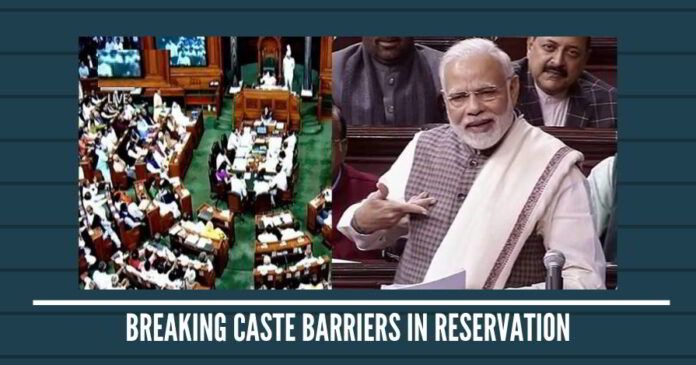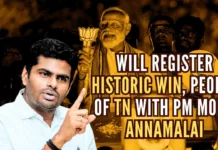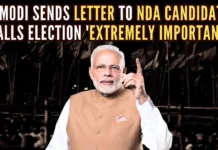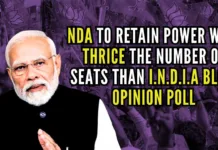
The framers of our Constitution were wise and pragmatic leaders, but they seem to have ignored the economic dimension while crafting the reservation policy
Opposition parties have flayed the Modi Government’s decision to provide 10 per cent reservation in Government educational institutions and jobs to economically weaker sections that are not covered by the umbrella of existing quota legislations. Their objections are two. One, that the move is politically motivated and, therefore, suspect. Two, it will not stand court scrutiny because it is bad in law. Anyone of these reasons should have been good enough for the Modi-led regime’s critics to oppose the Constitution (124th) Amendment Bill which the Government brought before Parliament. Both taken together should have made them unambiguously reject the proposal on the floor of the House.
But previous reservations too had political motivations. Are we to forget that Prime Minister VP Singh had implemented the Mandal Commission recommendations and provided 27 per cent reservation to OBCs on political grounds.
But that didn’t happen. Instead, most opposition parties — barring a small number —extended their “in principle” support to the Bill. This is where the Modi Government’s master-stroke lies. It has served rivals a morsel that they can neither swallow nor throw out. A Mayawati can brand the Centre’s decision a political gimmick in the backdrop of the approaching Lok Sabha election, but she has to still “welcome” it. A KV Thomas (Congress MP) can deride the decision as yet another jumla of the Modi regime perpetrated without sufficient thought, but his party has to still give conditional support. A similar dilemma has gripped parties such as the Trinamool Congress and the Samajwadi Party. With the anti poorpoll season fast approaching, none of them wants to be “anti-poor”
Now, let’s look at the first objection. Of course, the Modi Government had political considerations in mind. The communities which have been left out of the quota pie supported the Bharatiya Janata Party in the recent past. But they had begun to feel cheated simply because they happened to be from castes that were not covered by laws that offer affirmative discrimination to Scheduled Castes/Scheduled Tribes and the Other Backward Classes (OBCs). The poor especially were outraged because they neither had the resources nor legislative backing to afford quality education or jobs in Government institutions. Additionally, they were upset by the Modi Government’s decision a few months ago of bringing in an Ordinance to protect the interests of the Scheduled Castes/Scheduled Tribes — upset not because of the decision per se but driven by the perception that the Government was not doing similarly enough for them. They had to be mollified.
But previous reservations too had political motivations. Are we to forget that Prime Minister VP Singh had implemented the Mandal Commission recommendations and provided 27 per cent reservation to OBCs on political grounds. In those days, the BJP, which was supporting the VP Singh regime from outside, had begun to speedily gain the support of the majority community. The Then Prime Minister’s move was meant to stunt that process. Besides, VP Singh had begun to feel the heat from rivals from within the ruling combine which he led, and the implementation of the Mandal recommendations, which overnight made him the ‘messiah of the backward classes’, acted and a buffer to protect him from internal attacks.
That such reservations have no meaning because Government jobs have shrunk and, in any case, the Modi regime has failed to generate employment.
Off and on, various parties, including the Congress, have spoken of the need of extending quota benefits on religious grounds — to the Muslims. It was a political, if clumsy, attempt. These parties also, openly or covertly, backed various agitations for caste-based reservations from relatively well off — both socially and economically — communities, to reap political dividend.
The second objection is that the move will be struck down by the courts because the Constitution of India does not provide for reservations based on economic criterion, and also because it breaches the 50 per cent ceiling the Supreme Court has set for all reservations taken together. The Government has made the position clear. it is indeed true that Article 16(4) of the Constitution refers to reservations to the socially disempowered castes. The Government, therefore, added another clause, Article 16(5), that explicitly provided for the new quota on economic considerations cutting across castes and religions that had been until now left out of the reservation policy. The PV Narasimha Rao regime had suffered a setback in the court when it had tried to bring the ‘economically poor’ from the forward castes into the quota structure because there wasn’t anything in the Constitution then to justify such a move; there wasn’t Article 16(5).
Second, the Centre has argued that the 50 per cent ceiling which the court has determined, would not apply to the new quota because the 50 per cent limit was for caste-based reservation, with a view of protecting the interests of the rest of the communities. As the Government sees it, nobody, including the judiciary, should have no problem if a mere 10 per cent of the rest of the population — 10 per cent that comprises the economically most backward — is given an opportunity through affirmative discrimination in education and employment.
There is yet another criticism of the decision. That such reservations have no meaning because Government jobs have shrunk and, in any case, the Modi regime has failed to generate employment. Modi’s rivals say that he has given the poor an empty plate but no food. By this argument, what purpose do the previously existing reservations have, since there are no jobs in any case? is the argument that Governments must first generate enough employment and only thereafter have reservations?
The framers of our Constitution were wise and pragmatic leaders, but they seem to have ignored the economic dimension while crafting the reservation policy. Decades later, VP Singh followed suit. Both were obsessed with the social uplift of the backward castes, of ‘correcting historical wrongs’. While it was a fine move to empower such castes socially through education and job quotas, none appeared to have realised that poverty has no caste or religion. That realisation has dawned late, but it’s better late than never.
Note:
1. The views expressed here are those of the author and do not necessarily represent or reflect the views of PGurus.











Exposing lies of Rahul for misguiding on Rafale is very important for BJP. Gadkari and Nirmla Sithramans clarifications did not get enough publicity.
Articles in news papers are required even if they are paid articles.
Much needed boost for the privileged yet economically backward general caste population. I would say the best policy of the Modi regime for the public. This needs state assemblies nod for implementation though but nevertheless it means purpose. Next step, post election would be to remove the creamy later from reservation and make 50% available for deserving economically backward caste.
10% reservation for economically backward is a master stroke by Modi to win elections. He must do more to appease core electorate of BJP/Right:
1. Increase IT limit to at least Rs. 10 lakhs.
2. Increase GST exemption to Rs. 1 Cr. Composition to 5 Cr. for goods.
3. DBT for farmers
4. Decrease interest rates
5. More surgical strikes
6. Expose RGs lies on farm loan waivers and Rafale.
7. Appoint Lokpal immediately
8. End tax terrorism by simplifying Income tax and Company Law
9. Negative Income Tax for below tax exempt categories.